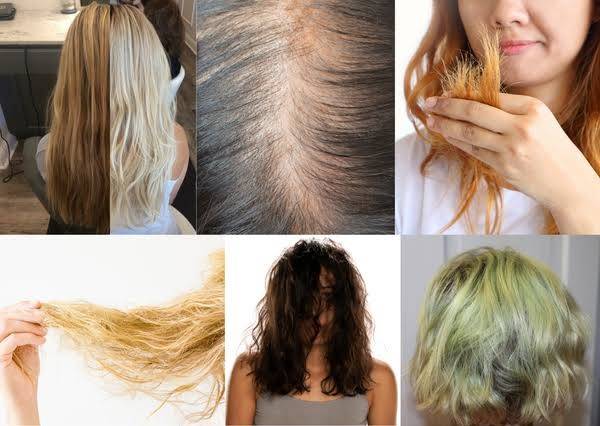Does your hair feel dry, frizzy, and dull?
Do you think your hair loss is worsening with time, and you’re not able to understand why?
Probably it is due to the effects of hard water on your hair. Although hard water has some health benefits, its effects on hair are detrimental in terms of hair damage and hair loss. It is important to identify if the water you are using at home is hard or soft to prevent hair fall /damage.
What is hard water?
Water that contains a lot of minerals, such as calcium and magnesium, carbonates, bicarbonates, and sulfates, is hard water. Hard water can be classified as temporary or permanent.
Temporary hardness is caused by the presence of dissolved bicarbonate minerals (calcium bicarbonate and magnesium bicarbonate). When dissolved, these types of minerals yield calcium and magnesium cations (Ca2+, Mg2+) and carbonate and bicarbonate anions (CO2−3 and HCO−3). The presence of the metal cations makes the water hard.
Permanent hard water is usually caused by the presence of calcium sulfate/calcium chloride and/or magnesium sulfate/magnesium chloride in the water.
Unlike the permanent hardness caused by sulfate and chloride compounds, “temporary” hardness can be reduced either by boiling the water or by the addition of lime (calcium hydroxide) through the process of lime softening. Boiling promotes the formation of carbonate from the bicarbonate and precipitates calcium carbonate out of solution, leaving water that is softer upon cooling Temporary hard water is easier to tackle as it requires just boiling compared to permanent hard water, which needs a more elaborate procedure like water softeners/ion exchangers.

Tips to identify hard water:
- Utensils and sinks have white spots or have a white coating on them.
- Laundry feels hard.
- Hard water builds up in showers, taps, and faucets.
- Soap scum.
Effects of hard water on hair
- Calcium buildup prevents the absorption of moisture.
- Minerals crystallize on your scalp and make your hair brittle.
- Excess minerals can close the pores on your scalp.
- Hair lacks volume and looks flat and frizzy all the time.
- Mineral buildup encourages bacterial growth, making you prone to infections.
- It makes the scalp dry, leading to dandruff.
- Minerals in hard water make soap and shampoos less effective.
How do you treat hair fall due to hard water?
- Use a water softener, or RO.
Water softeners are filters which have ion-exchange resins which help remove the notorious mineral content to soften the water. Reverse osmosis is a technology that reduces mineral buildup and is used in aquaguards. So use Aqua Guard water to rinse your hair.
- Use of bottled water
Bottled water is soft water, but it could turn out to be expensive for daily use.
- Hair oils
Massaging the scalp and hair with hair oils moisturises it and helps treat dry scalps caused by hard water.
- Use a clarifying shampoo, lemon, or amla rinses.
Opt for a gentle shampoo which is free from parabens, sulfates, and fragrance. Clarifying shampoo reduces mineral buildup. Lemon/Amla rinses help as vitamins C and tannins help in moisturising the hair.
- Use Lukewarm water /room temperature water.
Hot water can dry the scalp, further opening the cuticle to increase mineral buildup.
- Rainwater harvesting
Rainwater is naturally soft due to processes such as evaporation and condensation. So if your locality has hard water and it is affecting your hair, rainwater harvesting is a good option.
Last words
Hard water has a few benefits but can be detrimental to hair. Prevention is better than cure, and measures taken to soften water or usage of soft water help prevent ill effects to the hair. Simple steps go a long way in treating hair exposed to hard water.
We at Venkat center, Bangalore, offer you treatment for hair loss for all purposes.
Dr Mihir Shankar
